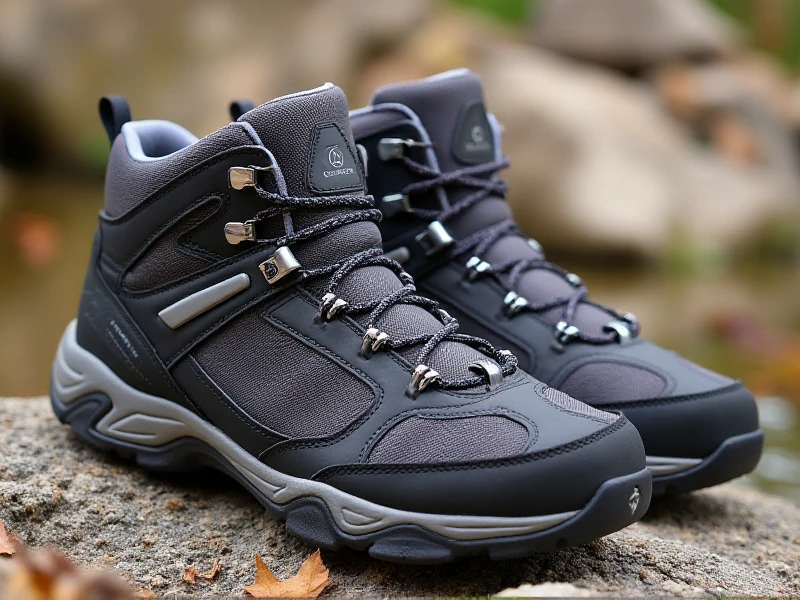Finding the Perfect Women's Hiking Shoes: Your Trail-Ready Guide
2025-06-10

Hitting the trails and exploring nature's wonders starts with the right footwear, and that's where women's hiking shoes come into play. While any hiking boot can get you moving, opting for a pair designed specifically for women transforms your adventures, thanks to tailored fit, enhanced comfort, and superior performance on varied terrains. Women's feet often differ from men's, with narrower heels, higher arches, and lighter builds affecting support and movement. Not investing in a quality pair can lead to discomfort or injuries like blisters or ankle strains. Instead, by focusing on purpose-built shoes, you'll unlock a world of benefits—from longer endurance on rugged hikes to pure enjoyment in the great outdoors. Whether you're a beginner tackling easy paths or a seasoned trekker taking on mountains, this guide dives into everything you need to know to find your ideal women's hiking shoes, no matter your skill level or style.
Now, let's break down the key factors that make women's hiking shoes stand out. First, anatomy matters. Manufacturers craft these shoes with women's distinct foot shapes in mind, featuring narrower profiles at the heel and forefoot to prevent rubbing and slippage. For instance, brands like Merrell and Salomon incorporate anatomical last designs that mirror typical female arch heights, reducing fatigue during long treks. Materials are optimized too—thinner soles and lighter constructions ensure agility without compromising on grip; options with Vibram rubber outsoles or Gore-Tex linings make a big difference in wet or uneven conditions. Plus, cushioning matters: modern models often include ergonomic midsoles that absorb shock effectively, especially on rocky descents. It's a myth that hiking shoes must be bulky—sleek, low-cut designs are rising in popularity, offering flexibility while maintaining ankle support through advanced padding systems.
When selecting your perfect pair, start by assessing your hiking needs. Consider terrain type: waterproof women's hiking shoes with aggressive treads suit muddy trails, like The North Face's Ultra line, while breathable mesh options shine on dry, desert hikes. Sizing is crucial too—always try shoes on in-store if possible, walking a bit to test for heel lift or pinch points. Remember, brands size smaller than everyday sneakers, so size up by half for comfort. Traction and durability go hand-in-hand; prioritize models with multidirectional lugs for grip on slopes, such as Keen's Targhee series. For those prioritizing weight, minimalist trail runners from brands like Altra deliver, but ensure they have rock plates for protection. I always recommend breaking in shoes gradually to avoid hotspots—wear them around home before hitting big trails. Prices vary, but investing $100-$200 secures quality that lasts for years, outperforming cheaper alternatives that might crumble under pressure.
Beyond technical specs, comfort is king for an immersive hiking experience. Look for features like molded footbeds and cushioned collars, which reduce pressure points over miles. Reviews often rave about Columbia's Newton Ridge boots for their plush interiors that cradle feet, making them ideal for multi-day hikes. Safety plays a role too—reflective accents boost visibility on early mornings, while stability tech like rigid shanks prevents ankle rolls on loose gravel. Health-wise, proper fit promotes joint health; ill-fitting gear can cause plantar fasciitis, so prioritize wide-toe boxes for natural splaying. For eco-conscious adventurers, brands such as Patagonia now offer sustainable women's hiking shoes with recycled materials. Finally, pair them with good socks—merino wool varieties wick moisture away, minimizing blisters.
In wrapping up, embracing women's hiking shoes empowers your journeys by blending performance with personal comfort. They're more than just footwear—they're your trusty companions on every summit push or forest stroll. Start by identifying your priorities: water resistance, lightness, or support. Then explore top retailers like REI or Backcountry for trial options. Remember, a great pair boosts confidence, making rough trails feel effortless. Stride into your next adventure knowing you're equipped for the best, and you'll rediscover the joy of hiking one step at a time. Happy trails!
Category: